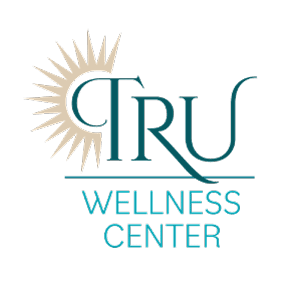Let’s say you finally book that long-overdue date night; no kids, no phones, just the two of you. You sit down at the table… and suddenly, there’s nothing to say. The only words exchanged are about soccer practice and the mysterious red warning light on the car’s dashboard.
When did the conversations run dry? When did your partner become a stranger sitting across from you, instead of the person you couldn’t wait to talk to? Sound familiar?
Many couples don’t seek therapy until they feel like roommates, business partners, or emotional strangers. But what if the best time to get help isn’t when things fall apart—but when you first feel the cracks?
Couples therapy isn’t just for the brink. Some of the best outcomes happen when partners reach out early—when communication feels off, the tension is growing, or connection feels out of reach. As a therapist trained in CBT, EFT, and the Gottman Method, I help couples untangle patterns, heal emotional wounds, and rebuild a foundation of trust and connection.
Let’s look at five warning signs that may be waving the red flag and how therapy can help.
- You’re Having the Same Argument on Repeat
You know the one—about money, parenting, in-laws, or “who left the dishes in the sink again.” You fight, make up, then cycle back through.
Why it matters: Repetitive conflict is often a signal that something deeper—like unmet emotional needs or core fears—isn’t being addressed (Johnson, 2004).
How therapy helps: EFT uncovers the emotional cycle underneath the surface fights, while CBT offers tools to reframe thoughts and improve emotional regulation. Gottman calls these “gridlocked” issues—and yes, they’re solvable (Gottman & Gottman, 2015).
- You’re Talking Less or Only Talking Logistics
If your communication has been reduced to “What’s for dinner?” or “Did Sam get a walk?”, the emotional connection may be slipping.
Why it matters: Emotional disengagement can feel subtle at first, but it’s often a precursor to long-term dissatisfaction.
How therapy helps: Couples therapy helps partners become more emotionally available, responsive, and engaged; what EFT calls a secure bond. You’ll learn how to shift from managing logistics to sharing inner worlds again.
- You Feel More Like Roommates Than Partners
If physical affection, intimacy, or shared joy has faded, you may feel more like co-managers of a household than a romantic couple.
Why it matters: Disconnection in the emotional or physical relationship often leads to loneliness; even in the same room.
How therapy helps: Using Gottman’s research on intimacy and fondness rituals, therapy helps couples rebuild physical and emotional closeness in safe, respectful ways (Gottman & Silver, 2018).
- You Walk on Eggshells Around Certain Topics
If you’re avoiding issues because you “don’t want to set them off” or “it’s just not worth the fight,” that’s a red flag.
Why it matters: Avoidance often signals fear of disconnection or conflict. Over time, it can lead to resentment, distance, or explosions.
How therapy helps: Couples therapy provides a structured, emotionally safe place to explore hard topics. CBT helps manage cognitive distortions like catastrophizing, and EFT helps partners express fear or pain instead of anger or silence.
- You Feel Alone in the Relationship
You might technically be together, but it doesn’t feel like you’re on the same team.
Why it matters: One of the strongest predictors of relationship distress is emotional isolation, when you’re physically together but emotionally miles apart.
How therapy helps: Therapy helps each partner feel seen, heard, and valued again. We work on attunement, emotional responsiveness, and repairing old hurts, so you can reconnect in real and lasting ways.
Final Thought: It’s Not “Too Early”—It’s Just On Time
If any of these signs feel familiar, those quiet dinners, repeated arguments, or the slow drift into emotional distance. It may be time to tune in before you check out. Therapy isn’t about pointing fingers or proving who’s right. It’s about learning to turn toward each other, even when it’s hard.
The strongest couples aren’t conflict-free. They’re the ones who learn how to navigate the messy, emotional terrain of real life together. Don’t wait for the storm to hit full force. Reaching out now might be the most loving and courageous thing you can do for your relationship.
References
- Gottman, J. M., & Gottman, J. S. (2015). 10 Principles for Doing Effective Couples Therapy. W. W. Norton & Company.
- Gottman, J. M., & Silver, N. (2018). The Seven Principles for Making Marriage Work (Updated Edition). Harmony.
- Johnson, S. M. (2004). The Practice of Emotionally Focused Couple Therapy: Creating Connection. Brunner-Routledge.


